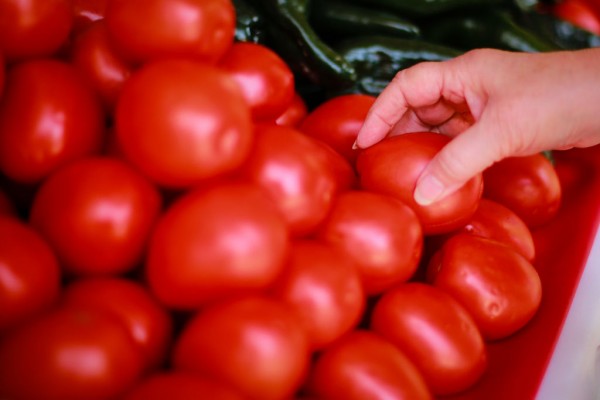Tomatoes: Affordable Source of L-DOPA, Treament Drug for Parkinson's
Parkinson's Disease has caused a lot of turmoil for people around the world. According to Parkinson Foundations' statistics, approximately 60 thousand Americans are affected by the neurodegenerative disorder, and 10 million people globally are suffering from the devastating disease.
In response to the growing demand and cost of treatments of the disease, John Innes Center researches aims to develop ways to turn tomatoes into tiny drug-producing biofactories.
But why tomatoes? John Innes Centers reports in their release that this is because these fruits are high-yield crops and can be easily grown in many parts of the world.
ALSO READ: Caffeinated Beverages May Help Prevent Parkinson's Disease
How is this possible?

According to Science Daily, the researchers modifies tomatoes through the introduction of a gene responsible for the synthesis of L-DOPA in beetroot where it functions in the production of pigments betalains.
Since L-DOPA is produced from an amino acid called tyrosine, Eureka Alert adds that the team injected a gene encoding tyrosinase, an enzyme that utilizes tyrosine in building molecules such as L-DOPA. They also note that the higher level of L-DOPA specifically in the fruit part led to higher yields than those associated with the production of L-Dopa in the whole plant.
Is this beneficial?
Led by John Innes Center researchers, Science Daily reports that the new way of utilizing tomatoes as a natural source of L-DOPA will benefit people who suffer adverse side effects such as nausea and behavioral complications when taking synthesized L-DOPA.
The researchers express their aims in Eureka Alert stating that creating a production means where L-DOPA is extracted from the tomatoes and is purified into the pharmaceutical products.
John Innes Centers mentions in their release that Parkinson's disease is a growing problem in developing countries that where many people do not have enough money for the synthetic version of the treatment intended for Parkinson's disease.
READ ALSO: Study Shows Gut Bacteria Could Be Reason for Side Effect of Drug for Parkinson's Treatment
The corresponding author of the study, Professor Cathie Martin from John Innes Center notes in a statement also published in Science Daily saying, the idea is that communities can grow tomatoes with relatively little infrastructure. She also notes that since the tomatoes and genetically modified, it can b\also be grown in controlled environments with very narrow meshes to prevent the pollen from escaping through insects.
Martin adds in Eureka Alert that when that happens communities can extract L-DOPA from tomatoes because it is soluble, and make it possible for the communities to concoct purified products, relatively low tech, and be dispensed locally.
Other Benefits
In an interview with News Atlas, Dario Breitel states that engineering crops such as tomatoes for the production of all manner of useful molecules can give developing nations better access to pharmaceutical technology.
News Atlas mentions that the concept-study that the new way of manufacturing the treatment for Parkinson's disease may reduce the adverse side effects of the treatment, which is evident in some patients that consume synthesized L-DOPA.
They also note that shelf life improvement and raised levels of amino acids that they can investigate. This means that further research is still needed for more viable products and answers.
READ NEXT: Study Links Diabetes Drug in Allowing or Preventing Parkinson's Disease
Check out more news and information on Parkinson's Disease on MD News Daily.
Dec 10, 2020 12:00 PM EST





